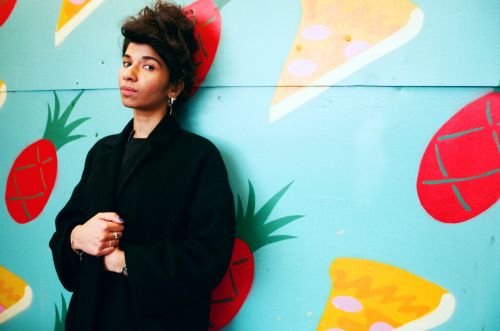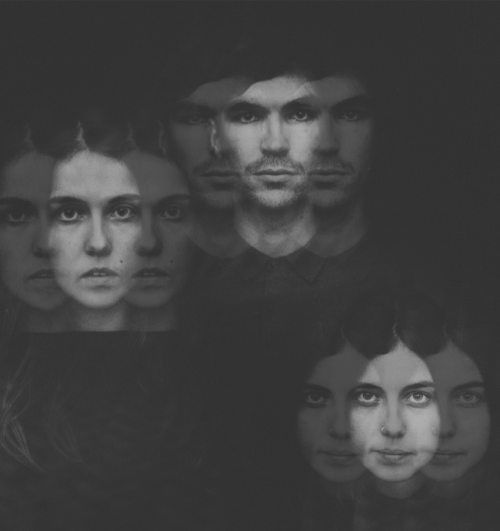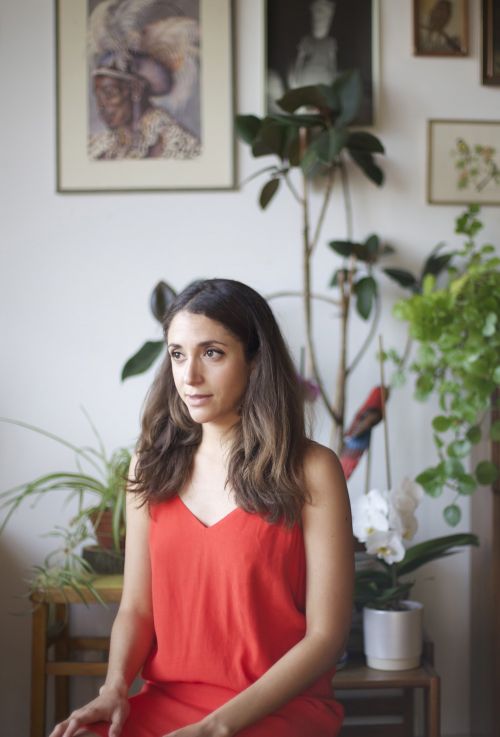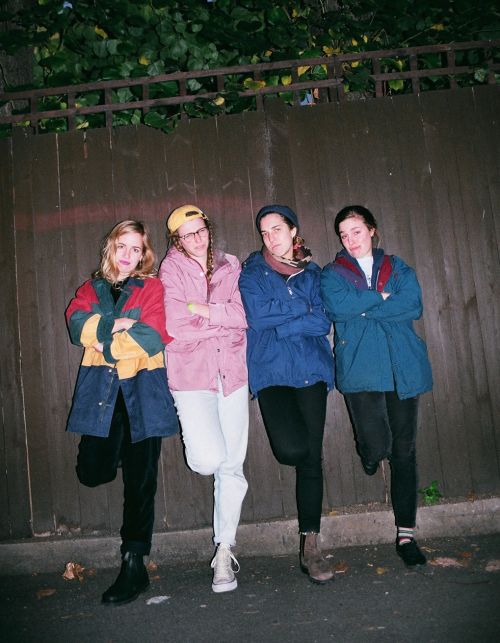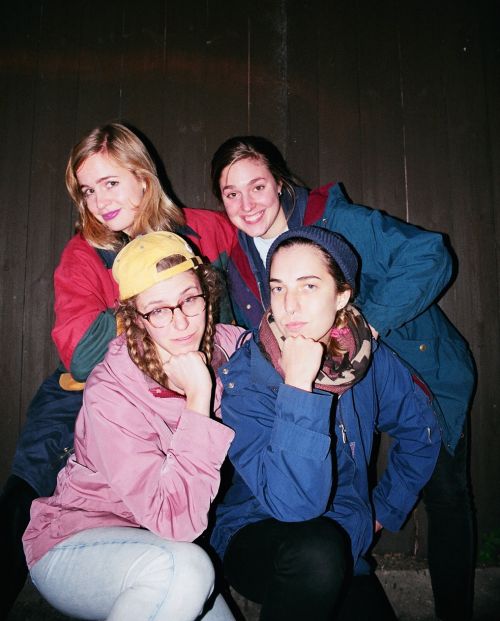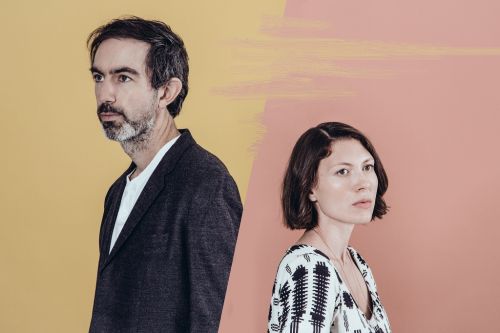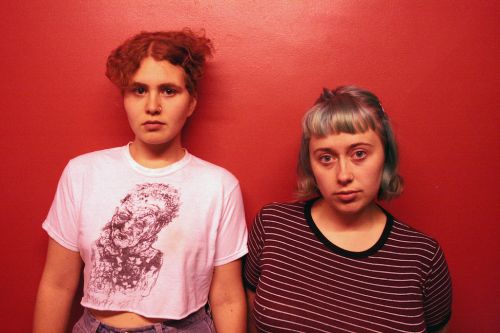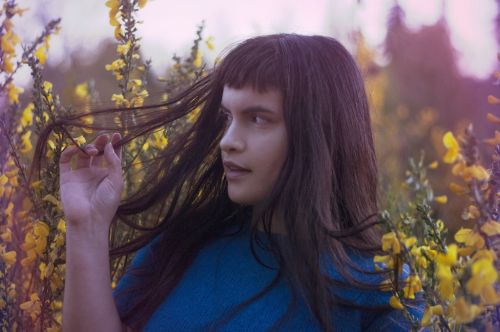There’s a surprising exuberance to A Man Alive, Thao and The Get Down Stay Down’s new album. Not because the San Francisco band, fronted by Thao Nguyen, are in any way inconspicuous--their live sets are known for their raucous energy--but in the light of the painful story at its core.
This is the first time Thao has used her eclectic take on rock to look inwards and explore her relationship with her absent dad. The result is empowering in its resilience. The vulnerability of her lyrics and high pitched vocals are contrasted--elevated even--by the insistently assertive beats and bass lines. Speaking to Thao just before the release of her sixth LP, I’m reminded that emotional hardship is a nuanced experience, full of intensity.
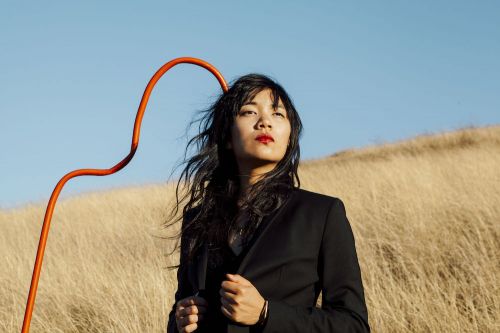
What have you been up to today? I spent most of the day hiking and by the ocean. It was sunny and warm and almost windless, which is a rare gem of a combination for San Francisco, so everyone stays outdoors for as long as possible.
What drove you to create A Man Alive? As I began writing songs for the new record the only ones that were taking hold seemed to be about my relationship with my dad. I think they had to get out and their insistence drove the making of this record. I was reluctant at first to make something so personal. But I'd also reached a point in my life where I was ready to delve and confront in a way I hadn't been before. I started to embrace the idea of making something much more personal and direct for my own sake.
What were you inspired by at the time? I'm always most inspired by what I'm reading, and when I'm in songwriting mode I'm especially susceptible and seeking. In the beginning stages, it was Marilynne Robinson's novel Gilead. After one particular passage, I wept. I was struck by how much of my life and my dad I saw in one of the characters. Then I wrote Astonished Man, our most recently released single. It helped set the tone and precedent for the rest of the record.
The tension between your feelings about your dad and the forceful sound is gripping. How did you go about this theme from a songwriting perspective? The two priorities of this record were to be more emotionally and sonically forthright. I wanted this record to better capture the emotion and energy we have playing live. I believe this record does that in a way none of the others have. I've always veered toward sublimation and it was very freeing and satisfying to be honest and express grief and joy and anger and hopelessness and optimism in equal, upfront measure. I also wanted to have fun and scream and dance and communicate with the audience on a more substantive and vulnerable level every time we performed.
Your previous album We The Common was inspired by your work in a women's prison. What prompted you to write about something more directly personal for this album? My early thirties. In all seriousness, I don't think I've allowed myself to be that vulnerable in my songs or my live performance. That's changed with age and experience. Writing, recording, and touring We The Common was so rewarding and rejuvenating and it led me first to my community and my city, and then to myself. There's only so much time you can go looking outward if you still have some inside business to sort out.
You studied Sociology and Women's Studies at college. How has that affected your work as an artist? My intention in school was to go into social justice work. I found very quickly I didn't have the constitution to be on the front lines of that work, and I have so much respect and gratitude for the people who do. I believe I'm most effective using my job as a touring musician to help support the causes I love, and I promised myself I'd always keep those causes as close as I could. That allegiance gives me so much; it makes me want to make the best thing I can, and do as well as I can, that I might develop a sturdier platform and be of greater service, and it keeps me from getting carried away with myself and hopefully from becoming an asshole.
What can you tell me about your song Astonished Man? It helped set the tone for content, but it also helped set the sonic tone for the album. It was one of the first songs recorded, and we knew pretty much right away that it would be the album opener. I have a lot of affection for this song because it captures an equanimity, compassion and optimism I don't always have.
Also, making the video for Astonished Man was so fun. I had to call my mum and warn her about the - I think tasteful and nuanced - blood and gore. She did not take well to it upon first viewing, but has since warmed. It’s not a mum-friendly video.
A Man Alive is released on the 4th of March.


